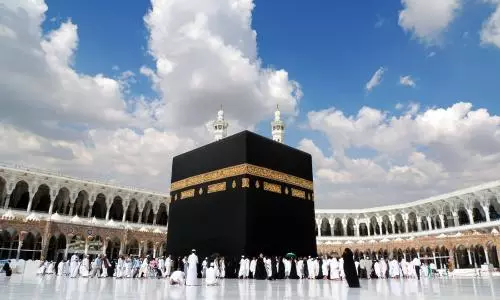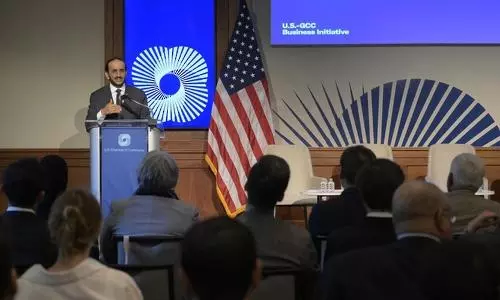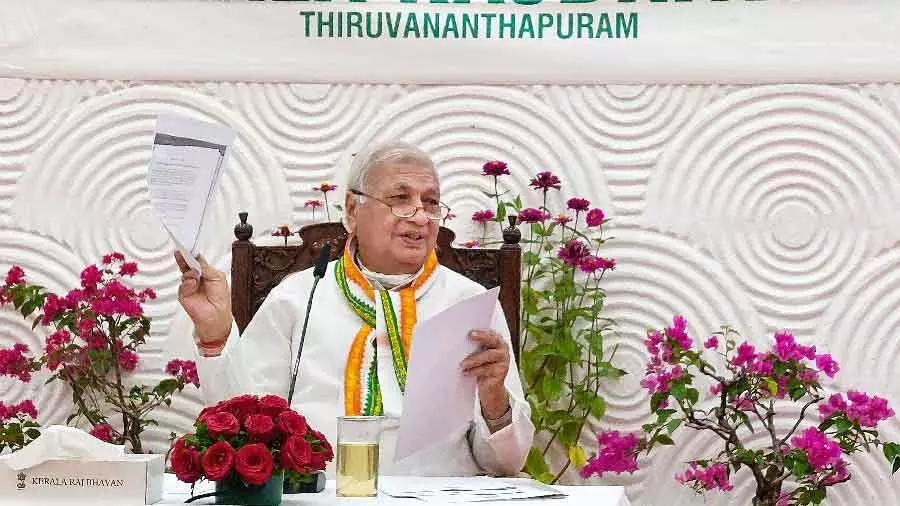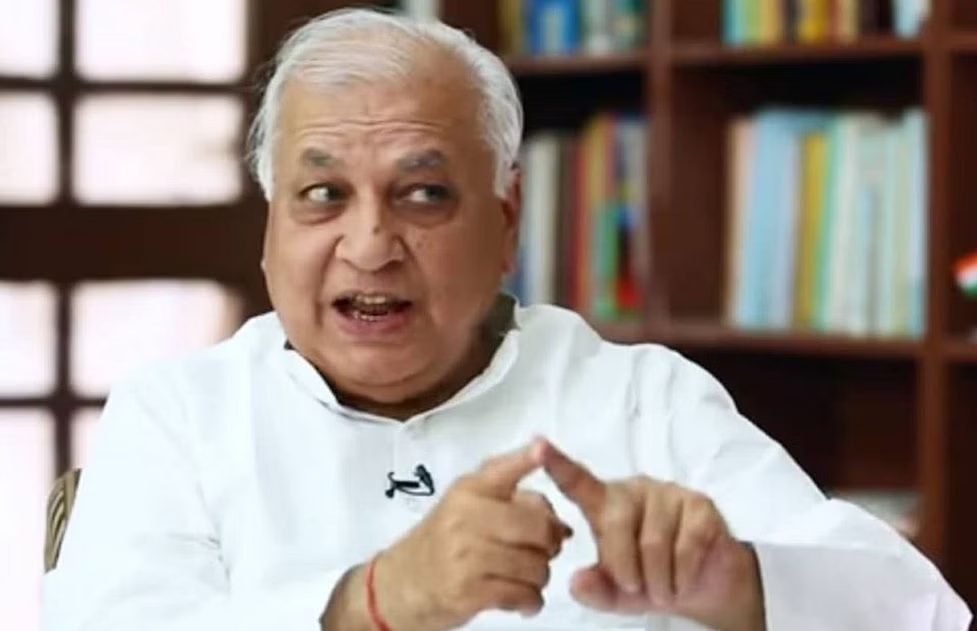
Kerala Governor's no-holds-barred presser
text_fieldsKerala Governor Arif Muhammad Khan, through a press conference held at Thiruvananthapuram on Monday, aggravated the row with the state government, which is worsening day by day. The governor claimed that what paved the way for the confrontation was his refusal to yield to vested interests. And he politicized the controversy by advancing a construction of events to the effect that those with notion of class enmity from 'alien ideology' are in the administration and it is the consequence of this that caused the incidents from the campus to the history congress in Kannur. He asserted that he will not sign the University and Lok Ayukta Amendment Bills. Khan also alleged that the Chief Minister interfered with the jurisdiction of the Governor contrary to law and precedents and that the chief minister directly came to the Raj Bhavan and exerted pressure to get his wish fulfilled in the appointment of the Kannur varsity's VC. Khan also justified his visit to the RSS chief and glorified the political stance of the Sangh Parivar thereby making no secret of his his own political leanings.
The Governor-Government tug of war, which intensified over the appointment of the Vice Chancellor of Kannur University, went into high gear on the issue of appointment of relatives in the University, out of the way systems of appointments of the personal staff of the Ministers, and disputes over the amendment bills, including the defanging of the Governor and the Lok Ayukta. Although at one point the two sides had seemed to move to a reconciliation, soon matters went back on a collision course. Even when the Governor moved away from a normal gubernatorial course and veered to active political discussions and criticism of the government, the Chief Minister had been adopting a composed approach of indifference and evasion considering the dignity of the constitutional position. However, when the governor, who sat on the bills passed by the assembly refusing to approve them, came out in the open and lashed out at the chief minister and the government, the chief minister, the ruling party and the leaders of the front hardened their defence. It was after this that the governor called a press conference on Monday and openly said everything he wanted to say. The governor asked whether it was because of adopting a helpful stance at the time an attack was made on him at the history congress in Kannur that the Vice Chancellor and KK Ragesh got their positions. With this, Khan trod into an act of ridicule and of washing the dirty political linen in public. Stigmatizing Marxism as an alien ideology, he also derided the hegemony over adversaries, right from campuses to the Chief Minister's press conference.
Now that the government has been put in the dock, it is forced to come up with a resolution to the crisis. Unlike during the colonial period, when governors had extensive powers, through the process of framing the Constitution, the position of Governor was envisaged as a guide and associate of the government, as a representative of the President or the Centre and above party politics. Given that the Constitution has not given any last word on the powers of the Governor, the deemed role of the governor is to facilitate administration with grace. It is imperative for the governor to recognise it as his duty to stand with the government which is accountable to the people and to provide guidance. But since the appointment is vested with the central government, the governors can only turn themselves into 'His Master's Voices'. The governor model of administration so far in the country has seen a kind of living in the state and being loyal to the Centre. Kerala was also the first state after independence to see the effect of the Governor becoming a pawn in the hands of the Centre - through a dictatorial act in 1959, of dismissing the EMS Namboodiripad ministry citing law and order situation. Later, the Congress governments at the Centre overturned governments at the rate of at least one cabinet every decade and maintained the 'tradition'. Subsequently when the Central government fell into the hands of the BJP, they outdid the Congress. It became a pattern with Raj Bhavans conspiring to install a BJP government by dislodging other governments in many states. Kerala Governor is now enlightening the Chief Minister on the Constitution and democratic values. However, the question about the level to which he has lowered the position of governor by releasing his correspondence with the Chief Minister and challenging the ruling party politically, is extremely relevant.
Experience has shown the possible scenario of central administrations using governors as rubber stamps. And hence the recommendations of commissions from the First Administrative Reforms Commission in 1966 to the Sarkaria Commission of 1988, contain a crucial point regarding the choice and responsibility of the governor: that the person should not be an agent of the Centre. However, the National Commission appointed to review the functioning of the Constitution in 2001 pointed out that Governors have become agents of the Centre. Now Arif Mohammad Khan is proving that the agency model has not changed.




























